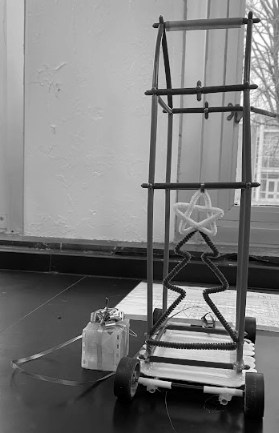New “Zombie genes” discovered by UIC researchers during surgery
April 27, 2021
Even hours after death, human brain cells can remain active and in some cases, even increase activity from the time of death and grow to large proportions according to research by the University of Illinois Chicago.
The discovery of these active genes came from a piece of tissue discovered during routine brain surgery, the UIC analyzed the expression in the genetic makeup of fresh brain tissue. The researchers discovered that genetic expression increases in some cases after death.
“These ‘zombie genes’ — those that increased expression after the post-mortem interval — were specific to one type of cell: inflammatory cells called glial cells. The researchers observed that glial cells grow and sprout long arm-like appendages for many hours after death.” UIC said in Today
Junior Lahela Thomas told Cry of the hawk in an interview “this could be big for the future, cell regeneration after death could be a key turning point in medical history”
According to Dr. Jeffrey Loeb, the John S. Garvin Professor and head of neurology and rehabilitation at the UIC College of Medicine and corresponding author on the paper, “Most studies assume that everything in the brain stops when the heart stops beating, but this is not so,” Loeb said. “Our findings will be needed to interpret research on human brain tissues. We just haven’t quantified these changes until now.”
Dr. Loeb claims the significance of this discovery comes in the implications, “Most research studies that use postmortem human brain tissues to find treatments and potential cures for disorders such as autism, schizophrenia and Alzheimer’s disease, do not account for the post-mortem gene expression or cell activity. “
According to the UIC website, “The third group of genes—the ‘zombie genes’—increased their activity at the same time the neuronal genes were ramping down. The pattern of post-mortem changes peaked at about 12 hours.” This means that once the neuronal genes had finished their death, the activity in the “zombie genes” increased to an all-time high.
Loeb is director of the UIC NeuroRepository, a bank of human brain tissues from patients with neurological disorders who have consented to having tissue collected and stored for research either after they die, or during standard of care surgery to treat disorders such as epilepsy. During some cases of brain surgery to treat epilepsy, epileptic tissue is taken to eliminate chances of seizures, this is the tissue taken by researchers that was analyzed to discover these zombie genes.
“Our findings don’t mean that we should throw away human tissue research programs, it just means that researchers need to take into account these genetic and cellular changes, and reduce the post-mortem interval as much as possible to reduce the magnitude of these changes,” Loeb said. “The good news from our findings is that we now know which genes and cell types are stable, which degrade, and which increase over time so that results from postmortem brain studies can be better understood.”











